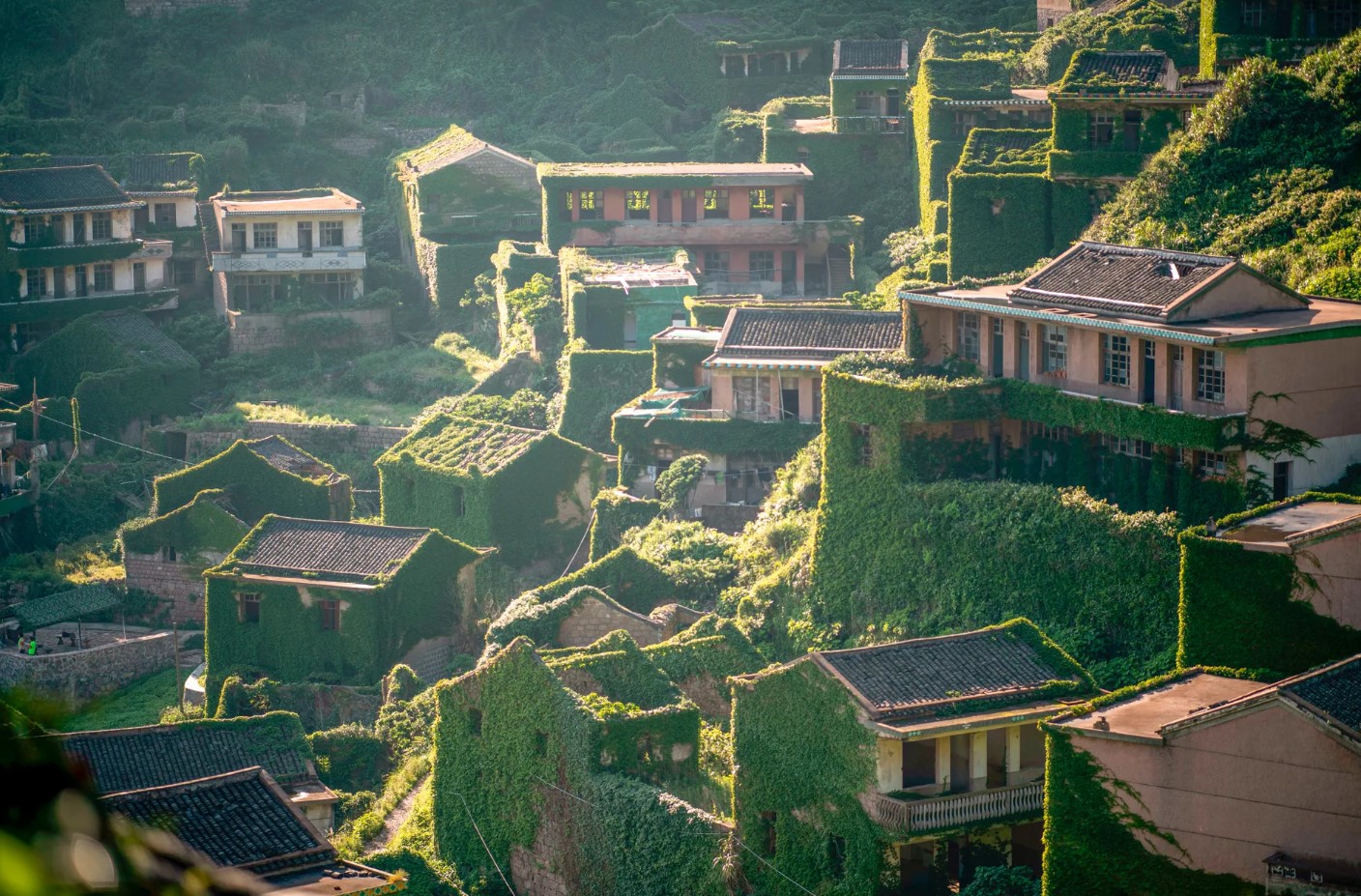
Introduction: Hidden away on the eastern coast of Shengshan Island in China, Houtouwan stands as a poignant testament to the inexorable forces of nature and the passage of time. Once a thriving fishing village, this enchanting place has now become a ghost town, where verdant greenery blankets its abandoned homes and streets, creating a surreal landscape that has captured the world’s imagination. Houtouwan’s history dates back to the Ming Dynasty (1368-1644) when it was established as a fishing community. For centuries, it thrived as a bustling hub for fishing and seafood processing. The village’s secluded location on Shengshan Island allowed its residents to make a sustainable living from the sea.

As the 20th century progressed, Houtouwan’s fortunes began to wane. Changing economic conditions, diminishing fish stocks, and the lure of more prosperous opportunities on the mainland prompted a mass exodus from the village. By the 1990s, Houtouwan had transformed into a ghost town, its streets deserted, and its homes left to the ravages of time. What sets Houtouwan apart is its remarkable transformation into a living example of nature’s resilience. Abandoned for over two decades, the village is now engulfed by a lush carpet of greenery. Ivy and vines snake through the empty houses, and trees sprout from once-bustling streets. The juxtaposition of decaying structures and thriving vegetation creates an eerie yet mesmerizing sight. Houtouwan’s unique charm has not gone unnoticed. In recent years, the ghost village has garnered attention from tourists, urban explorers, and photographers seeking to capture the ethereal beauty of this place. Its enigmatic allure lies in its profound transformation, where the ghosts of the past coexist with nature’s resurgence.

As visitors flock to Houtouwan, the delicate balance between preserving its beauty and protecting its fragile environment becomes crucial. Authorities and locals are increasingly aware of the need to manage the impact of tourism while safeguarding the village’s unique charm. Houtouwan stands as an evocative testament to the ever-changing relationship between human settlements and the natural world. It serves as a vivid reminder that, even in the absence of human activity, nature continues to evolve and reclaim what was once its own. The haunting beauty of Houtouwan, with its intertwining stories of abandonment and reclamation, is a poignant reflection of the dynamic interplay between human history and the forces of the environment.
